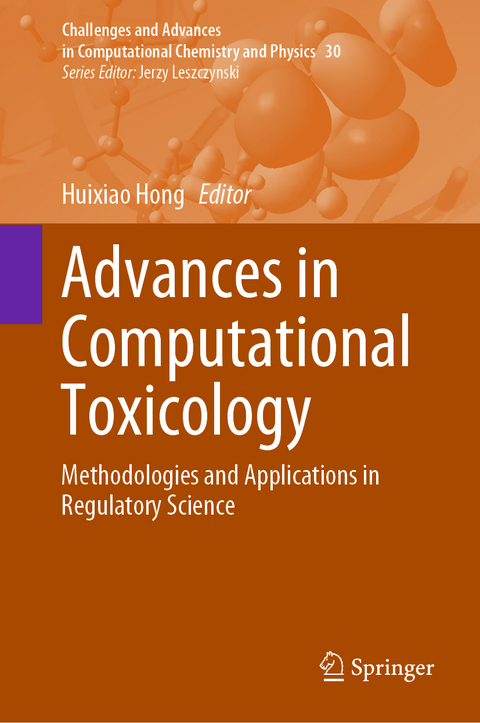
Advances in Computational Toxicology
Springer International Publishing (Verlag)
978-3-030-16442-3 (ISBN)
Dr. Huixiao Hong is the Chief of Bioinformatics Branch at the Division of Bioinformatics and Biostatistics, National Center for Toxicological Research (NCTR), FDA, Arkansas, USA and an Adjunct Professor at the University of Arkansas at Little Rock. He received his Ph.D. in computational chemistry from Nanjing University. Before he joined NCTR in 2007, Dr. Hong worked as the Manager of Bioinformatics Division at ICF International, as a senior computational scientist in ROW Science and held a research scientist position at Sumitomo Chemical Company, Japan. He was also a visiting scientist at National Cancer Institute at National Institutes of Health (NIH), USA and at Maxwell Institute in Leeds University, UK. Dr. Hong was an Associated Professor at Nanjing University in China. His research interests span the areas of chemoinformatics, computational chemistry, next-generation sequencing data analysis, genome-wide association studies, proteomics, and systems biology. Dr. Huixiao Hong has published more than 180 scientific manuscripts and received many awards during his career.
Computational Toxicology Promotes Regulatory Science.- Tasks, Major Challenges and Emerging Modelling Methods for Computational Toxicology.- Xenobiotic Metabolism by Cytochrome P450s: Insights Gained from Molecular Simulations.- Applications of Molecular Modeling to Probe the Mechanism of Endocrine Disruptor Action.- Mixture Toxicity.- Towards reproducible in silico practice via OpenTox.- Combining Machine Learning and Multilayer Networks for Toxicity Prediction.- Matrix and tensor factorization for toxicity modelling.- Network-based In Silico Assessment of Drug Cardiotoxicity.- Mode-of-action-guided chemical toxicity prediction: A novel in silico approach for predictive toxicology.- Machine learning methods for toxicity analysis.- Predictive modeling of Tox21 data.- The NTP DrugMatrix Toxicogenomics Database and Analysis Tool.- Applications of Computational Toxicology for Risk Assessment of Food Ingredients and Indirect Food Additives.- In silico prediction of the point of departure (POD) with high throughput data.- The application of topic modeling on drug safety signal detection and analysis.- Molecular dynamics simulations and applications in computational toxicology.- Computational modeling for prediction of drug-induced liver injury in humans.- Genomics in vitro to in vivo extrapolation (GIVIVE) for drug safety evaluation.
| Erscheinungsdatum | 05.06.2019 |
|---|---|
| Reihe/Serie | Challenges and Advances in Computational Chemistry and Physics |
| Zusatzinfo | XVII, 412 p. |
| Verlagsort | Cham |
| Sprache | englisch |
| Maße | 155 x 235 mm |
| Gewicht | 805 g |
| Themenwelt | Naturwissenschaften ► Chemie ► Physikalische Chemie |
| Schlagworte | Computational Toxicology • Database Toxicology • Deep Learning for Toxicity Prediction • Deep Learning Toxicology • endocrine disruptors • In Silico Toxicology • Machine Learning Toxicology • Mixture Toxicity • Regulatory science • Regulatory Science Toxicology • Toxicity Analysis • Toxicity Modeling • Toxicity Prediction • toxicogenomics • Toxicology Simulations |
| ISBN-10 | 3-030-16442-X / 303016442X |
| ISBN-13 | 978-3-030-16442-3 / 9783030164423 |
| Zustand | Neuware |
| Haben Sie eine Frage zum Produkt? |
aus dem Bereich


